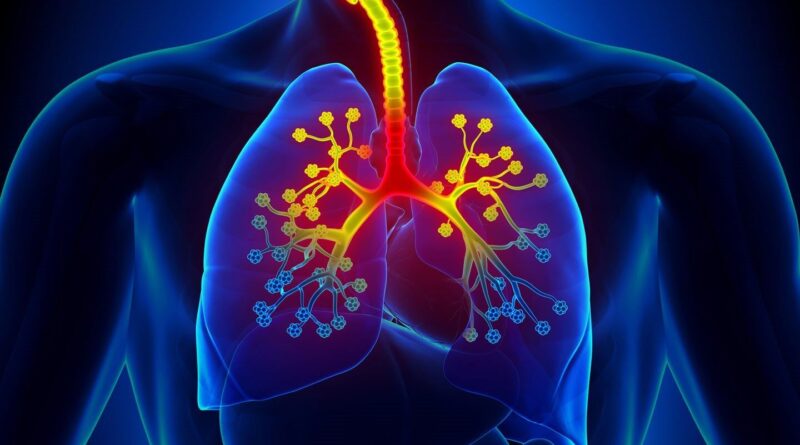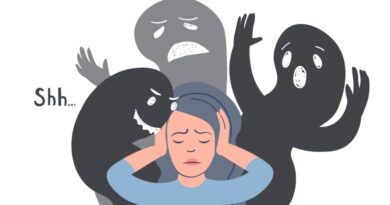Common Causes of Asthma Attacks
Asthma attacks can be fatal if not dealt with straight away, In this article we will be sharing some common Causes of Asthma Attacks. Asthma is a mild annoyance for some types of people. For others, it may be a severe issue that disrupts everyday activities and may result in a life-threatening asthma attack.
Although asthma is incurable, its symptoms can be managed. Because asthma frequently changes over time, you must collaborate with your doctor to monitor your signs and symptoms and adapt your therapy.
Asthma is a severe problem, and if you have any discomfort in breathing or some common asthma symptoms, you should call a doctor online for more information. We suggest you Marham.pk for best medical health assistance at just one call.
What is Asthma?
Asthma is a disorder in which your airways narrow and swell, causing excess mucus to be produced. This makes breathing difficult, resulting in coughing, a whistling sound (wheezing) as you exhale, and shortness of breath.
It is a respiratory disorder that damages your lungs. Asthma is one of the most frequent long-term disorders in children, but it can also affect adults. Asthma symptoms include wheezing, shortness of breath, chest tightness, and coughing at night or early morning.
Common Causes of Asthma
and Asthma Attacks
Many patients do not know the causes and triggers of asthma because usually, the triggers are so common that people do not heed them, and the sudden asthma attack may be very severe. So we have made a list of patients with asthma that contains some widespread and harmful causes and triggers of asthma. So let’s have a look at the list:
Allergies
Allergies are a typical problem in people who have asthma. Eighty percent of asthmatics are allergic to airborne allergens such as trees, grass, weed pollens, mildew, animal dander, dust mites, and cockroach droppings. According to one study, children with high amounts of cockroach droppings in their homes were four times more likely to suffer childhood asthma than children with low levels. Another common asthma trigger is an allergy to dust mites.
If you have difficult-to-control asthma, consult an allergist to determine whether you have allergies. Medicating your allergies and avoiding your triggers will help reduce your chances of having a severe asthma attack.
Tobacco
Tobacco smoke is harmful to everyone, especially asthmatics. If you have asthma and smoke, you should stop.
“Secondhand smoke” is smoke produced by a smoker and inhaled by a second person. Secondhand smoking can set up asthma attacks. Make your house a smoke-free zone. Family members who smoke should be encouraged to quit. If you have asthma, people should never smoke around you, in your home, in your car, or anywhere else you spend a lot of time.
Food Allergies
Food allergies can range from minor to severe and life-threatening. They rarely cause asthma without causing other symptoms. If you are allergic to some food, asthma can be part of anaphylaxis’s powerful and life-threatening reaction. The following foods are the most frequently connected with allergy symptoms:
- Eggs and cow’s milk
- Tree nuts (peanuts)
- Salads with Soy Wheat Fish, Shrimp, and Other Shellfish
- Fresh fruits
Dust Mites
These are tiny organisms that are found in most households. Dust mites can cause asthma attacks if you have asthma and are allergic to them. To avoid attacks:
- Use allergen-proof mattress and pillowcase covers to create a barrier between dust mites and yourself.
- Use of down-filled pillows, blankets, or comforters is not recommended.
- Wash and properly dry your bedding once a week.
- Vacuum carpets, area rugs, and floors regularly with a HEPA-filtered vacuum.
- Maintain low relative humidity levels in the home, ideally between 30 and 50%.
Exercise
A strenuous workout can cause airways to constrict in approximately 80% of people with asthma. Exercise is a common asthma trigger. Within the starting 5 to 15 minutes of an aerobic workout, you will experience chest tightness, coughing, and difficulty breathing if you have exercise-induced asthma. Most people’s symptoms disappear after 30 to 60 minutes of activity. However, up to 50% of persons with exercise-induced asthma may experience another attack 6 to 10 hours later. A slow warm-up may assist in avoiding this.
If you have severe asthma and are not already active, consult your doctor first about tracking your breathing and choosing the appropriate activities.
Conclusion – Common Causes of Asthma Attacks
Common causes and triggers can cause asthma; therefore, a person with the asthma problem may know all the reasons. This list is also helpful for those people who have not been diagnosed with asthma. For the best knowledge and prevention, you should call the best pulmonologist present online at Marham. Moreover, you can also book some tests and physical appointments of the best chest specialist.
FAQs
1. What are the most likely causes of asthma?
Having a parent with asthma, having a severe respiratory infection as a kid, having an allergic condition, or being exposed to specific chemical irritants or industrial specks of dust in the workplace are the most prevalent risk factors for getting asthma.
2. What are the three kinds of asthma?
- Allergic Asthma
- Non-allergic Asthma
- Cough-variant Asthma.
3. Is your asthma making you tired?
Shortness of breath, wheezing, coughing, and chest tightness are some of the most common symptoms of asthma. Fatigue and fatigue are not commonly mentioned as asthma symptoms. On the other hand, Asthmatics frequently report feeling exhausted, and asthma might make you tired.




